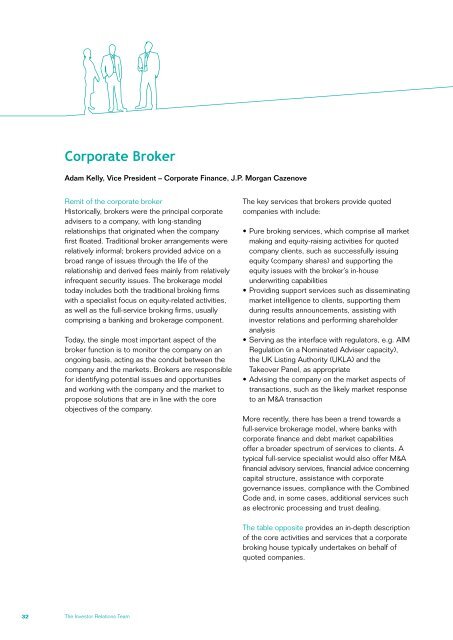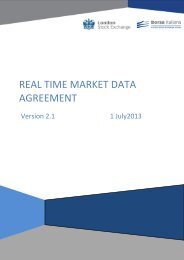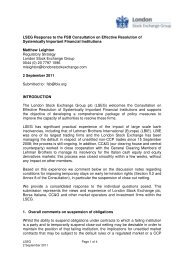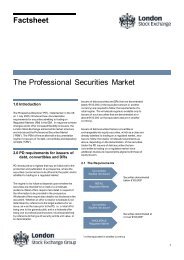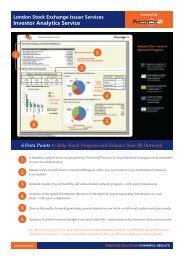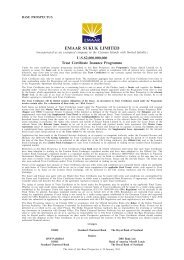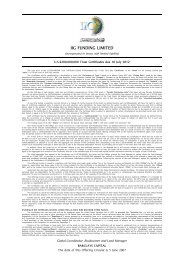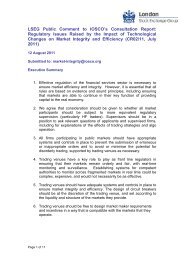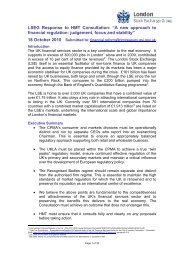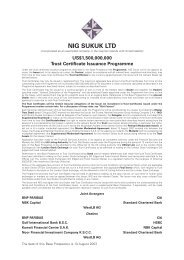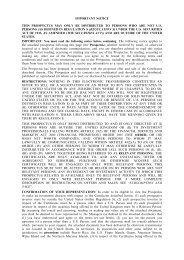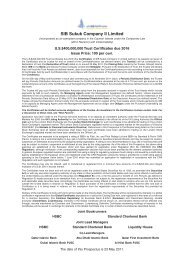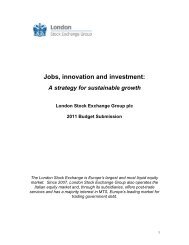Investor Relations - A Practical Guide - Investis
Investor Relations - A Practical Guide - Investis
Investor Relations - A Practical Guide - Investis
Create successful ePaper yourself
Turn your PDF publications into a flip-book with our unique Google optimized e-Paper software.
Corporate Broker<br />
Adam Kelly, Vice President – Corporate Finance, J.P. Morgan Cazenove<br />
Remit of the corporate broker<br />
Historically, brokers were the principal corporate<br />
advisers to a company, with long-standing<br />
relationships that originated when the company<br />
first floated. Traditional broker arrangements were<br />
relatively informal; brokers provided advice on a<br />
broad range of issues through the life of the<br />
relationship and derived fees mainly from relatively<br />
infrequent security issues. The brokerage model<br />
today includes both the traditional broking firms<br />
with a specialist focus on equity-related activities,<br />
as well as the full-service broking firms, usually<br />
comprising a banking and brokerage component.<br />
Today, the single most important aspect of the<br />
broker function is to monitor the company on an<br />
ongoing basis, acting as the conduit between the<br />
company and the markets. Brokers are responsible<br />
for identifying potential issues and opportunities<br />
and working with the company and the market to<br />
propose solutions that are in line with the core<br />
objectives of the company.<br />
The key services that brokers provide quoted<br />
companies with include:<br />
• Pure broking services, which comprise all market<br />
making and equity-raising activities for quoted<br />
company clients, such as successfully issuing<br />
equity (company shares) and supporting the<br />
equity issues with the broker’s in-house<br />
underwriting capabilities<br />
• Providing support services such as disseminating<br />
market intelligence to clients, supporting them<br />
during results announcements, assisting with<br />
investor relations and performing shareholder<br />
analysis<br />
• Serving as the interface with regulators, e.g. AIM<br />
Regulation (in a Nominated Adviser capacity),<br />
the UK Listing Authority (UKLA) and the<br />
Takeover Panel, as appropriate<br />
• Advising the company on the market aspects of<br />
transactions, such as the likely market response<br />
to an M&A transaction<br />
More recently, there has been a trend towards a<br />
full-service brokerage model, where banks with<br />
corporate finance and debt market capabilities<br />
offer a broader spectrum of services to clients. A<br />
typical full-service specialist would also offer M&A<br />
financial advisory services, financial advice concerning<br />
capital structure, assistance with corporate<br />
governance issues, compliance with the Combined<br />
Code and, in some cases, additional services such<br />
as electronic processing and trust dealing.<br />
The table opposite provides an in-depth description<br />
of the core activities and services that a corporate<br />
broking house typically undertakes on behalf of<br />
quoted companies.<br />
32<br />
The <strong>Investor</strong> <strong>Relations</strong> Team


